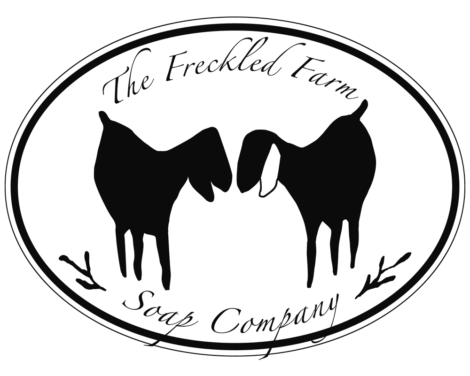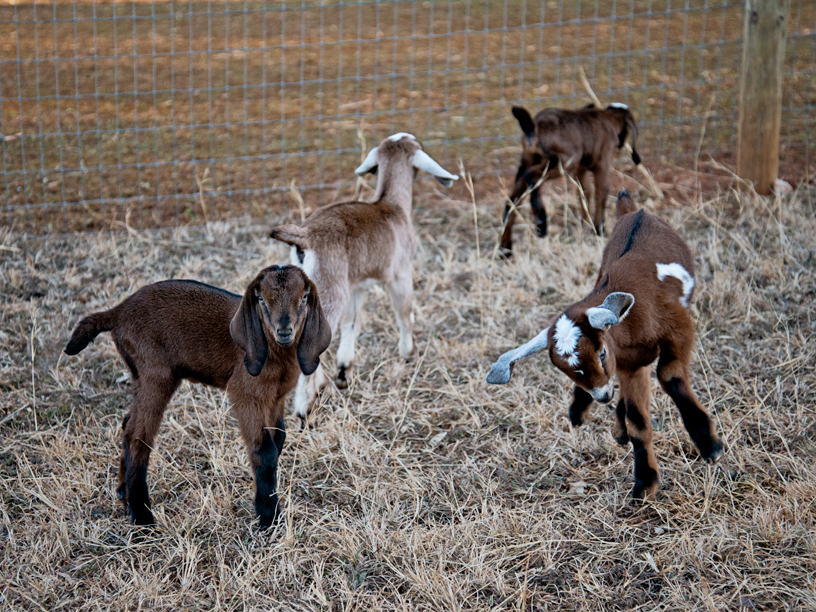If you haven’t already, now is the time of year to reserve your 2016 kids. Early reservation places you higher on the list and gives you the first pick once kids become available. We still have reservations available. Please feel free to email us if you are interested.
In the meantime, as you are planning for your new additions to your herd, I have compiled a list of questions to ask your breeder when purchasing a goat.
- At what age do they allow goat kids to leave their farm and go to their new homes? Generally this is will be between 8-12 weeks. I personally would not trust a breeder that would allow a goat to be sold earlier than 8 weeks. Knowing the timeline will help you plan, so you will be able to have everything together for your new goat before he/she arrives.
- What vaccinations will he/she have received at the time of pick-up? Some farms do not vaccinate kids, while others do. It is good to know what you may need to do, vaccination wise, once you get your new goat back to your farm.
- When was the last time the goat was dewormed and what were they dewormed with? It is suggested that you deworm a goat within the first week of having them on your farm (we have always done it between 5-7 days) because they are being exposed to a bunch of new parasites at once, even if you have never had goats on the property. I have heard several stories from other breeder friends of ours where people have taken a goat kid home, never dewormed them, and they died within a few weeks. If your breeder dewormed the goat soon before pick up you are going to want to wait until a safe period has passed before you deworm them again.
- Will the goat kid be disbudded? We only have disbudded goats on our farm. I wrote a blog post about it here.
- Have the goats been tested for things like CAE and have any of the goats tested positive. Our farm vet does a round a blood tests on all of our goats every year. This way people can purchase goats from us with confidence. Be wary of a farm where the goats have not been tested. Do not blindly trust people simply because they have been keeping goats for a long time. I have heard too many stories of people who ended up with diseased goats because the farmer had been keeping goats for decades and they assumed that they would be aware if there was an issue within their herd.
- Ask about the milk production of their does. How much milk have they given in the past? How does the milk taste (ask to taste if possible)?
- Are the goats registered? If you plan to show or breed you will want to purchase registered animals.
- Have there been any health issues within the herd or has a goat died of an unknown disease within the last few years? People can easily lie, so finding a farmer you trust is key. If they have had a heath problem it’s imperative to know in case it is something that can come back and effect the rest of your herd.
- What is their feeding regiment? If they use a different feed than you, you will need to purchase some of the feed that they are used to so you can slowly wean them off of it and onto the their new feed.
- Has there been a history of abortions in their herd?
- Are the kids bottle raised? We have bottle raised babies on our farm. In fact, I am not aware of a dairy goat farm in this area that doesn’t bottle feed.
- If you are purchasing an older goat… Why is the goat for sale? You may be inheriting someone else’s problem. They could be selling the goat because they don’t throw ideal kids or produce enough milk, or maybe because they have had health issues. On the other hand they could be selling in order to reduce their herd to a more manageable size. Make sure you ask!
Inspect the goats before you take them home. Check that their eyes are clear and the eyelids are within the acceptable red/pink range. Check to make sure their hooves are in good shape and there isn’t any hoof rot present. Make sure their coat looks healthy and shiny.
Some more Dos and Don’ts
- Do visit the farm where your goats are coming from.
- Do shop around
- Don’t buy just one goat. You need at least two.
- Don’t purchase your breeding stock from auctions
- Do quarantine your new goats from the rest of your herd.

